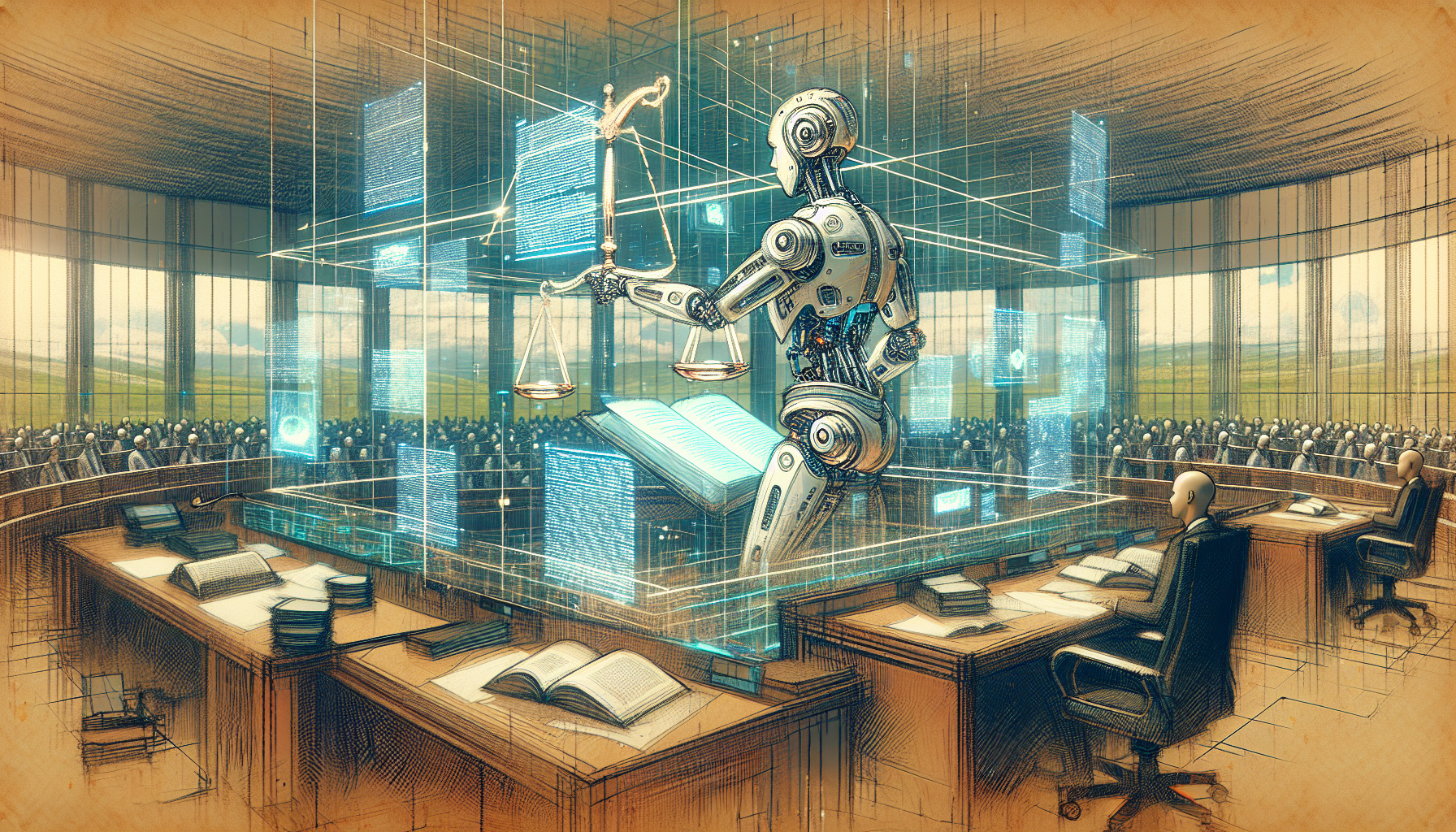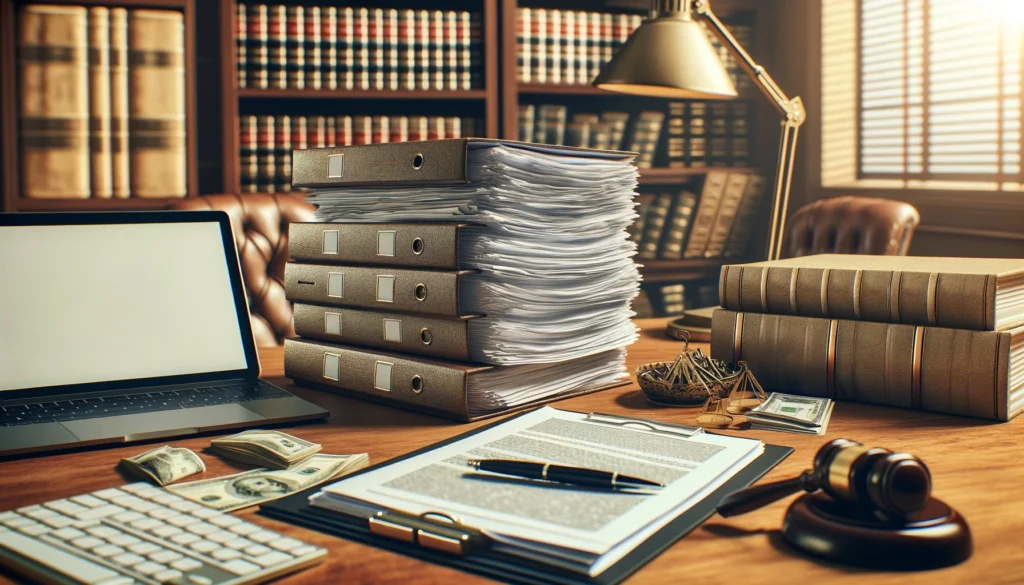
Unlocking Paralegal Potential: Leveraging AI for Personal Injury Cases
Paralegals play a crucial role in personal injury law, managing tasks that range from client communication to legal research and document preparation. Their ability to support attorneys by collecting evidence, drafting legal documents, and ensuring case details are meticulously organized is invaluable. However, as the legal landscape evolves, the integration of artificial intelligence (AI) offers an opportunity to amplify their efficiency and productivity.
AI, particularly advanced language models (LLMs) like ChatGPT, has emerged as a powerful tool for paralegals. ChatGPT can process and generate human-like text based on the input it receives, enabling paralegals to draft documents, conduct research, and even engage in preliminary client interactions with unprecedented speed and accuracy. This integration marks a significant shift in how legal work is approached, offering numerous advantages that will be explored in the following sections.
Revolutionizing Legal Drafts: The Advantages of ChatGPT
Incorporating ChatGPT into the legal drafting process brings numerous benefits. One of the primary advantages is time-efficiency. Traditional legal drafting can be a time-consuming endeavor, but with ChatGPT, documents such as demand letters, complaints, and motions can be drafted rapidly, freeing paralegals to focus on higher-level tasks.
Additionally, ChatGPT enhances accuracy and reduces the potential for human error. By leveraging vast databases and thorough algorithms, ChatGPT can generate well-structured, error-free drafts. Its continuous learning and adaptation capabilities mean it gets better over time, tailoring its responses to the specific needs and nuances of personal injury cases.
The collaboration between paralegals and AI models significantly boosts the quality and consistency of legal documents, ensuring a higher standard of work product.
Also read:
Mastering the Art of Prompt Crafting: From Basic to Advanced Techniques
Effective utilization of ChatGPT hinges on the ability to craft clear and concise prompts. A well-defined prompt enables the AI to provide precise and relevant responses. For beginners, starting with basic prompts such as, “Draft a demand letter for a car accident case” can be highly productive.
As expertise with ChatGPT grows, more nuanced and sophisticated prompts can be employed. For instance, “Write an opening statement for a personal injury case involving a slip and fall in a grocery store, including plaintiff’s injuries and only focus on factual allegations” offers a detailed framework for the AI to generate a comprehensive and focused response.
Employing contextual information and follow-up prompts can further refine responses. Providing context such as case specifics or legal precedents allows ChatGPT to tailor its output more closely to the requirements of each individual case. Paralegals can iteratively enhance the AI’s output by following up with prompts that clarify or delve deeper into specific areas, thus producing highly accurate and bespoke legal documents.
Also read:
Streamlining Legal Research and Citation
ChatGPT also excels at streamlining legal research. Paralegals can quickly obtain summaries of relevant case law and statutory provisions, dramatically reducing the time spent sifting through legal texts. For instance, by asking ChatGPT to summarize recent rulings on personal injury cases, paralegals can gather pertinent information swiftly.
Furthermore, generating citation lists and legal references efficiently becomes significantly easier. ChatGPT can compile comprehensive citation lists in various formats, allowing paralegals to ensure all legal documents are thoroughly referenced, thus upholding the standards of legal rigor and professionalism.
Also read:
Refining and Tailoring Legal Documents: Human-AI Collaboration
While AI-generated drafts can be highly competent, human oversight remains essential. Strategies for reviewing and editing AI-generated drafts are crucial to ensure the final documents meet the high standards expected in legal practice. Paralegals need to critically analyze the AI’s output, make necessary adjustments, and infuse their legal acumen to finetune the nuances of each document.
This collaboration combines human insight with AI efficiency, resulting in superior quality documents. Paralegals can leverage AI to handle bulk work but must ensure their expertise guides the final touches and overall strategic approach, thus maintaining the integrity and quality of legal work.
Also read:
Safeguarding Confidentiality and Ethical Considerations
Incorporating AI into legal practice mandates stringent adherence to confidentiality and ethical standards. Best practices for maintaining client confidentiality include using secure AI platforms, anonymizing sensitive information in AI interactions, and ensuring robust data protection protocols.
Moreover, ethical use of AI in the legal profession requires transparency in how AI is utilized and ensuring that all AI-generated content is thoroughly reviewed by legal professionals. By adhering to these principles, paralegals can safely and effectively integrate AI into their work.
Also read:
Future-Ready Paralegal: Keeping Pace with AI Advancements
To remain competitive and effective, paralegals must embrace continuous learning and adaptation. Keeping abreast of AI-driven innovations and evolving best practices in AI utilization will be critical in maintaining a future-ready skillset.
By proactively engaging with advancements in AI technology, paralegals can prepare for the dynamic changes in legal work, ensuring they remain valuable assets to their firms.
Also read:
Conclusion: Embracing AI for Enhanced Productivity and Quality
Integrating AI into paralegal work promises enhanced productivity and improved quality of legal services. By leveraging the capabilities of ChatGPT and similar tools, paralegals can streamline their processes, reduce errors, and produce high-quality legal documents efficiently.
The journey outlined above encourages paralegals to explore the potential of AI, continuously hone their skills in prompt crafting and document review, and embrace the evolving landscape of legal technology. The productivity and quality gains from AI integration make a compelling case for its adoption in daily legal practice.


